
Roatán: The Jewel of the Caribbean
Nestled in the Caribbean Sea, Roatán is a paradisiacal island that offers an unforgettable experience for tourists. This Honduran gem is known for its white sandy beaches, crystal-clear turquoise waters, and lush tropical forests. The island is part of the Mesoamerican Barrier Reef, the second-largest coral reef system in the world, making it a haven for divers and snorkelers. The underwater world is teeming with vibrant coral formations, exotic marine life, and even the occasional shipwreck waiting to be explored. Roatán is not just about its natural beauty; it also boasts a rich cultural heritage. The island is home to a diverse community of Garifuna, Mestizo, and Afro-Caribbean people, each contributing to the island's unique cultural tapestry. Visitors can enjoy local music, dance, and cuisine that reflect this multicultural blend. From traditional Garifuna drumming to savoring baleadas, a local culinary delight, the cultural experiences are as enriching as the natural ones. For the adventure seekers, Roatán offers a range of activities. Zip-lining through the lush canopy, exploring mangrove tunnels by kayak, or taking a thrilling boat ride to nearby smaller islands are just a few of the adrenaline-pumping options. For those who prefer a more relaxed pace, the island has numerous spas, yoga retreats, and secluded beaches where one can unwind and rejuvenate. Roatán is truly a destination that caters to all types of travelers, promising a memorable and multifaceted vacation experience.
Local tips in Roatán
- Visit West Bay Beach early in the morning to avoid crowds and secure a good spot.
- Carry cash, as many local vendors and smaller establishments do not accept credit cards.
- Don't miss the local seafood, especially the freshly caught fish and lobster.
- Bring eco-friendly sunscreen to protect the coral reefs while swimming or diving.
- Consider renting a scooter or bike to explore the island at your own pace.
- Learn a few basic Spanish phrases; it will enhance your interaction with locals.
- Book diving and snorkeling tours in advance, especially during peak seasons.
- Visit the Carambola Botanical Gardens for a serene escape into nature.
Roatán: The Jewel of the Caribbean
Nestled in the Caribbean Sea, Roatán is a paradisiacal island that offers an unforgettable experience for tourists. This Honduran gem is known for its white sandy beaches, crystal-clear turquoise waters, and lush tropical forests. The island is part of the Mesoamerican Barrier Reef, the second-largest coral reef system in the world, making it a haven for divers and snorkelers. The underwater world is teeming with vibrant coral formations, exotic marine life, and even the occasional shipwreck waiting to be explored. Roatán is not just about its natural beauty; it also boasts a rich cultural heritage. The island is home to a diverse community of Garifuna, Mestizo, and Afro-Caribbean people, each contributing to the island's unique cultural tapestry. Visitors can enjoy local music, dance, and cuisine that reflect this multicultural blend. From traditional Garifuna drumming to savoring baleadas, a local culinary delight, the cultural experiences are as enriching as the natural ones. For the adventure seekers, Roatán offers a range of activities. Zip-lining through the lush canopy, exploring mangrove tunnels by kayak, or taking a thrilling boat ride to nearby smaller islands are just a few of the adrenaline-pumping options. For those who prefer a more relaxed pace, the island has numerous spas, yoga retreats, and secluded beaches where one can unwind and rejuvenate. Roatán is truly a destination that caters to all types of travelers, promising a memorable and multifaceted vacation experience.
When is the best time to go to Roatán?
Iconic landmarks you can’t miss
Berth 1 - Port of Roatan
Discover Roatan's vibrant culture and stunning beauty from Berth 1, your gateway to unforgettable Caribbean adventures, offering easy access to beaches, reefs, and local experiences.
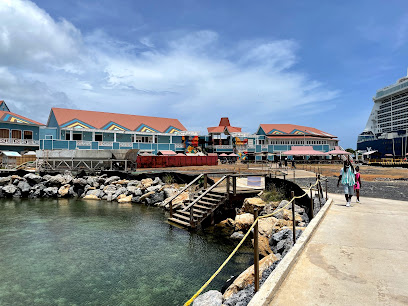
Mahogany Beach
Experience the beauty of Mahogany Beach in Honduras, where pristine sands meet crystal-clear waters in a tropical paradise.
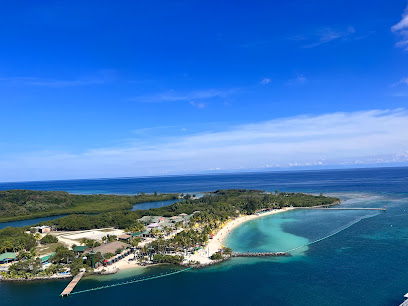
Daniel Johnson's Monkey and Sloth Hang Out
Explore the enchanting world of sloths and monkeys at Daniel Johnson's Monkey and Sloth Hang Out in Roatan, where adventure and conservation come together.
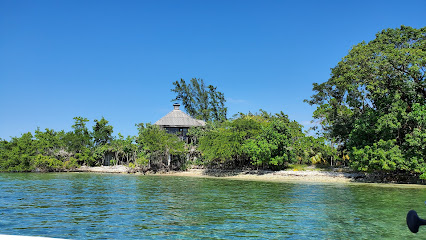
Anthony's Key Resort
Discover the enchanting beauty of Anthony's Key Resort, where adventure meets relaxation in the idyllic Bay Islands of Honduras.
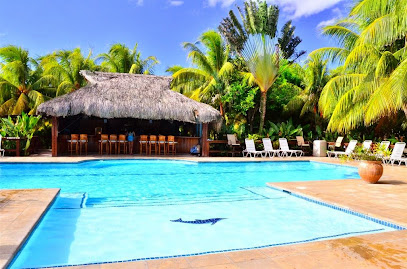
Little French Key
Discover Roatan's premier private island resort: pristine beaches, turquoise waters, animal sanctuary, and unforgettable adventures await at Little French Key, a Caribbean paradise.
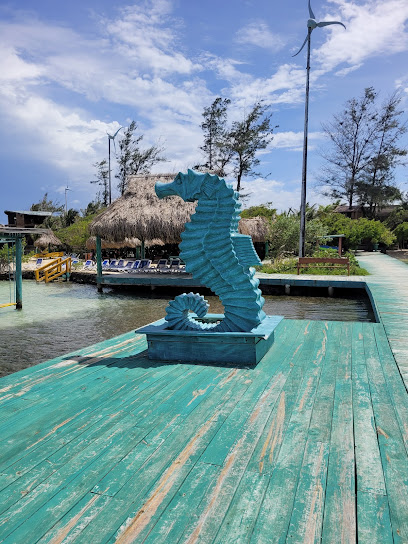
Jungle Top Adventures Zipline
Experience Roatan's breathtaking rainforest from above with Jungle Top Adventures Zipline, offering thrilling ziplines, suspension bridges, and stunning Caribbean Sea views near Coxen Hole.
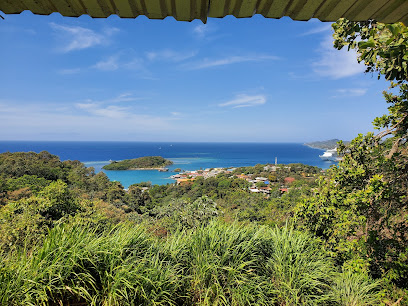
Mayan Eden
Explore the stunning biodiversity of Mayan Eden, a nature preserve and zoo in Roatan, where adventure and tranquility coexist.
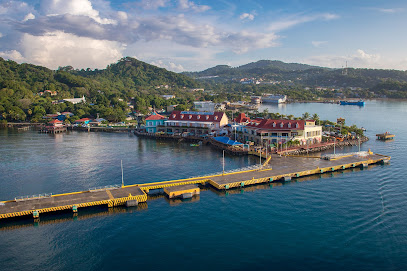
The Roatan Chocolate Factory
Discover the sweet side of Roatan at The Roatan Chocolate Factory - a delightful blend of chocolate artistry and local flavors.
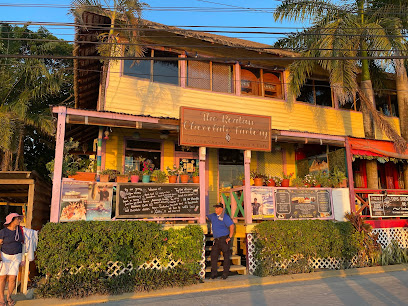
Gumbalimba Park
Discover Roatan's natural beauty and pirate history at Gumbalimba Park, an eco-adventure destination with monkeys, macaws, botanical gardens, and a private beach experience.
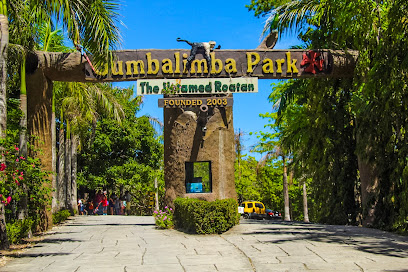
Roatan Institute for Marine Sciences
Discover the beauty of the Caribbean marine life at the Roatan Institute for Marine Sciences, an essential stop for eco-conscious travelers.
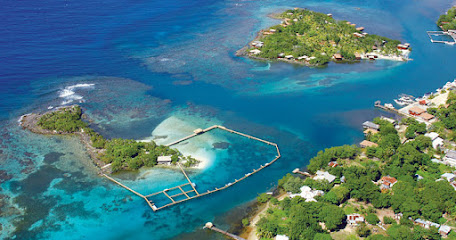
Arch's Iguana and Marine Park
Experience the unique charm of Arch's Iguana and Marine Park, where nature meets adventure in the heart of the Bay Islands.
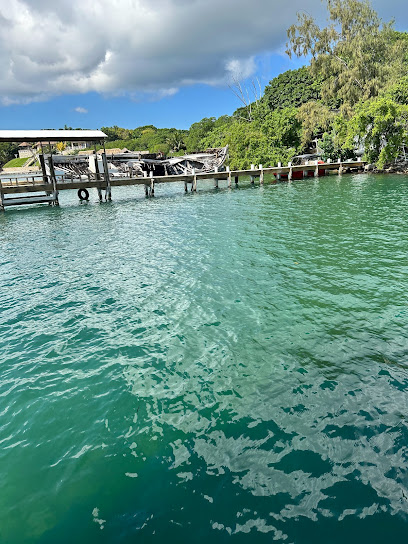
AJ's Monkeys and Sloths
Experience the thrill of interacting with monkeys and sloths at AJ's Monkeys and Sloths in Roatan, a wildlife park that delights animal lovers of all ages.
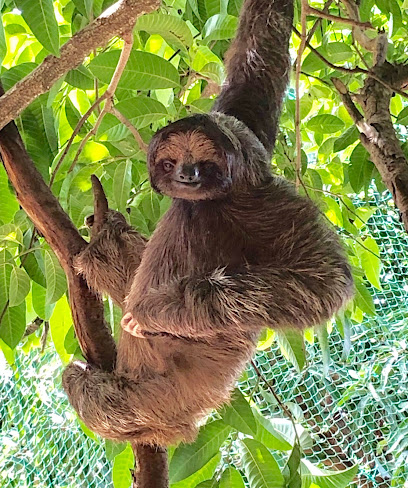
Maya Key
Experience the enchanting beauty of Maya Key, a tropical paradise in the Bay Islands, perfect for sun, sea, and cultural exploration.
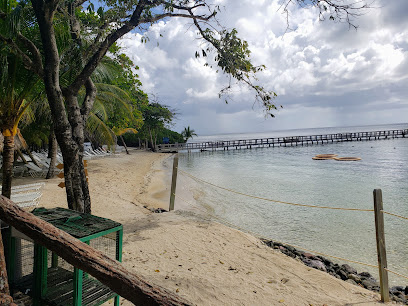
Roatan Island Brewing Co
Discover the unique flavors of Roatan at Roatan Island Brewing Co, where craft beer meets local cuisine in a beautiful island setting.
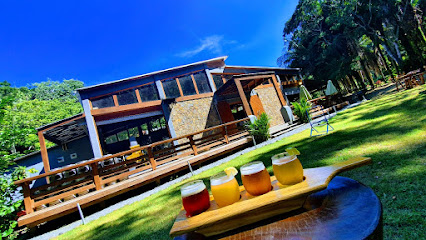
Roatan Rum Company
Experience the rich flavors of the Caribbean at Roatan Rum Company, where handcrafted rums and local delicacies await you in West Bay.
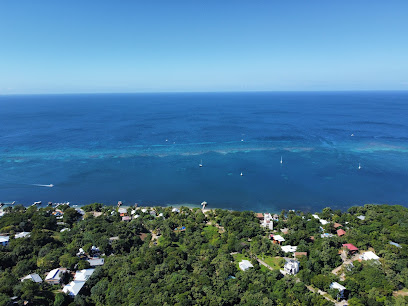
Unmissable attractions to see
Berth 1 - Port of Roatan
Discover the vibrant charm and stunning views at Berth 1 - Port of Roatan, your gateway to Caribbean adventure and local culture.
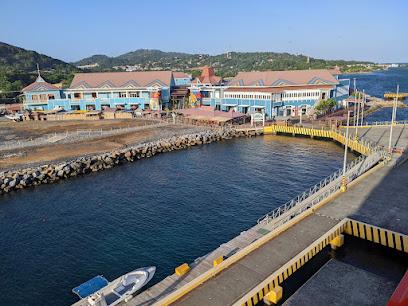
Mayan Eden
Explore Mayan Eden, a stunning zoo and nature preserve in Roatan, where wildlife and lush landscapes await your discovery in the heart of the Bay Islands.
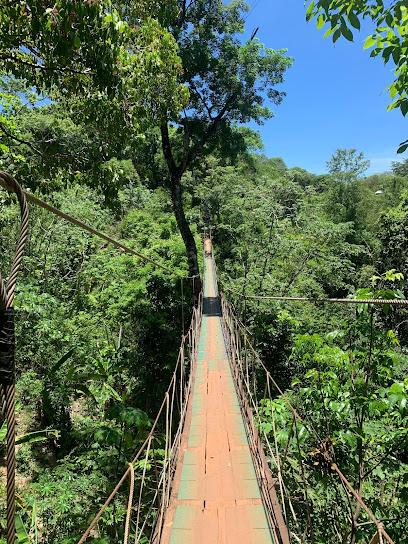
Booty Bar
Discover the vibrant flavors of the Caribbean at Booty Bar in West End, where great food and lively entertainment await.
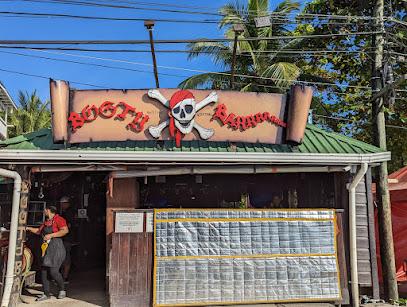
Gumbalimba Park
Discover the lush landscapes and thrilling adventures at Gumbalimba Park, a must-visit tropical paradise in the Bay Islands of Honduras.
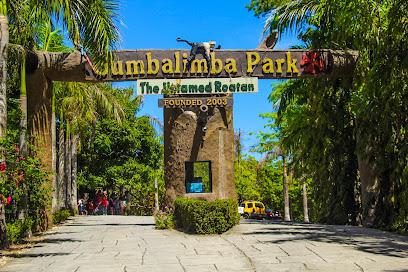
AJ's Monkeys and Sloths
Discover an unforgettable wildlife experience at AJ's Monkeys and Sloths in Roatan, where you can interact with sloths and monkeys in a lush tropical paradise.
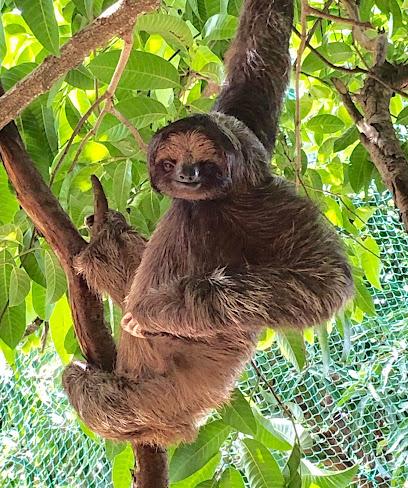
Arch's Iguana and Marine Park
Explore Arch's Iguana and Marine Park, where adventure meets conservation in the heart of the Bay Islands, offering unforgettable wildlife encounters.
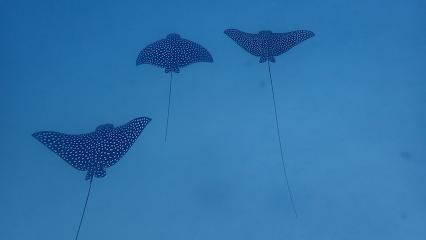
Maya Key
Explore the beauty of Maya Key in the Bay Islands, Honduras, where stunning beaches meet rich cultural experiences in a tropical paradise.
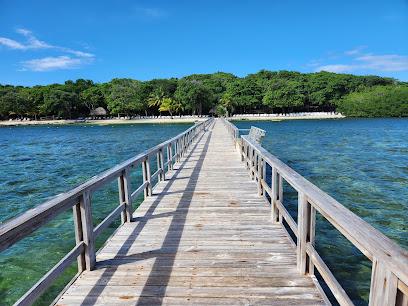
West Bay Beach
Experience the unparalleled beauty of West Bay Beach, a tropical paradise in the Bay Islands known for its stunning scenery and vibrant marine life.
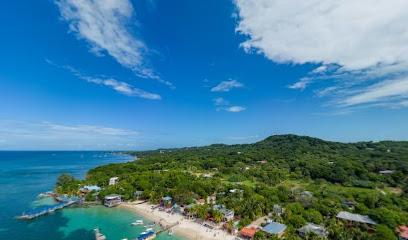
South Shore Canopy Zipline
Discover the thrill of ziplining at South Shore Canopy Zipline in Roatan, where breathtaking views and adventure come together in a tropical paradise.
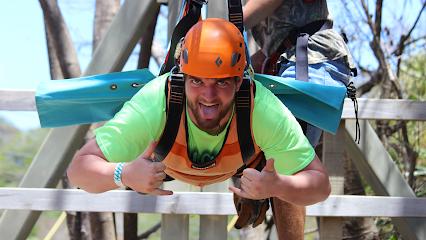
Sol y Mar Beach Club by Mayan Princess
Discover the serenity and luxury of Sol y Mar Beach Club, a tropical paradise in Sandy Bay, where relaxation and adventure await.
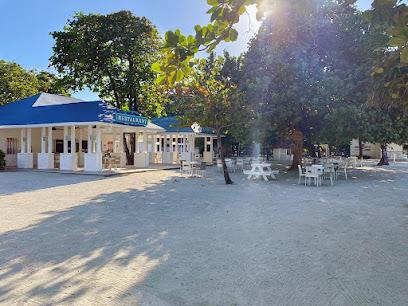
Black Pearl Golf Course and Beach Club
Discover the ultimate blend of golf, beach relaxation, and stunning views at Black Pearl Golf Course and Beach Club in the breathtaking Bay Islands.
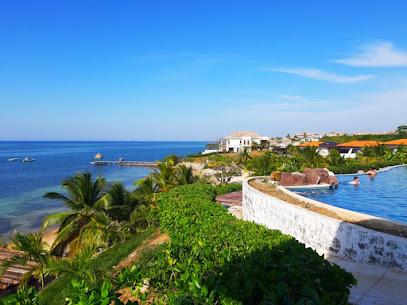
Roatan Rum Company
Explore the Roatan Rum Company for a unique distillery experience that combines authentic rum tastings with delicious baked goods in a vibrant Caribbean setting.
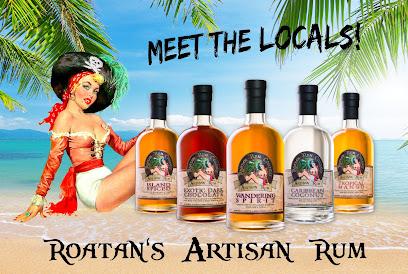
ATV Dune Buggy ROATAN Eco-Jungle Adventure Tours
Experience the thrill of Roatan Adventure Park with ATV rides, wildlife encounters, and ecological exploration in the heart of nature.
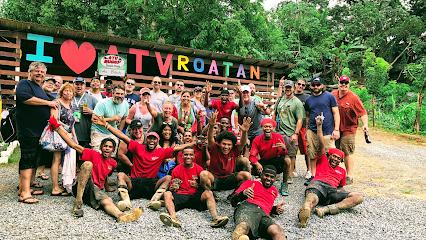
MANAWAKIE ECO NATURE PARK
Experience the untouched beauty of Manawakie Eco Nature Park in the Bay Islands, where nature meets adventure in a serene ecological paradise.
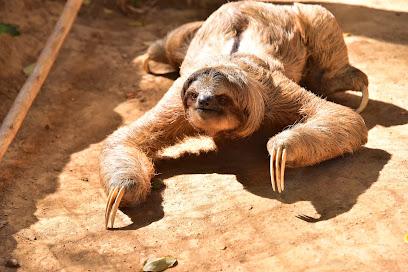
Stone Castle Cameo Factory Institute
Explore the exquisite artistry of the Stone Castle Cameo Factory Institute in Gravel Bay, a unique museum celebrating the craft of cameo carving.
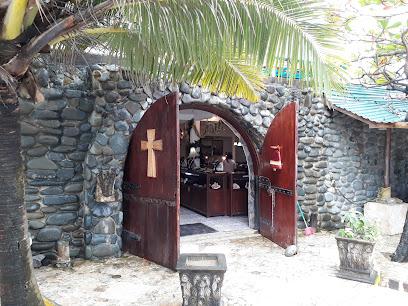
Essential places to dine
The Pineapple Grill
Experience tropical flavors at The Pineapple Grill - your go-to breakfast destination in French Harbour's Bay Islands.
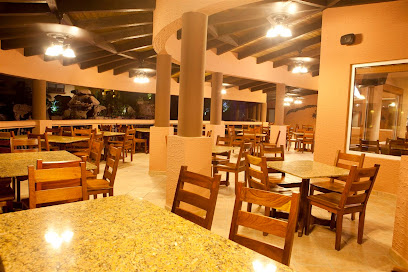
Booty Bar
Experience the lively spirit of Caribbean cuisine at Booty Bar in West End – where delicious food meets stunning beach views.
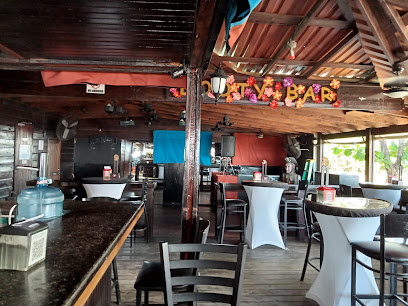
Sundowners Beach Bar
Experience tropical bliss at Sundowners Beach Bar in West End – where delicious food meets stunning ocean views.
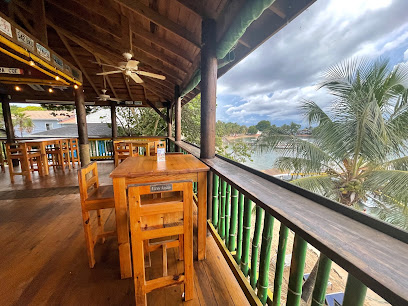
Calelu's
Savor authentic Honduran dishes in a lively setting at Calelu's – your go-to spot in West End for flavorful meals and great prices.
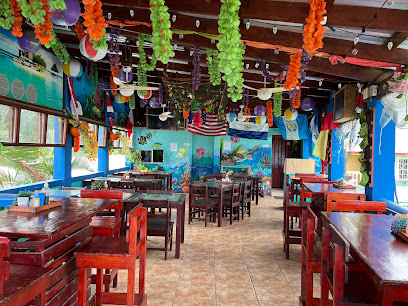
Happy Harry's HideAway
Savor authentic Caribbean flavors at Happy Harry's HideAway in West End—where every meal is an adventure in taste!
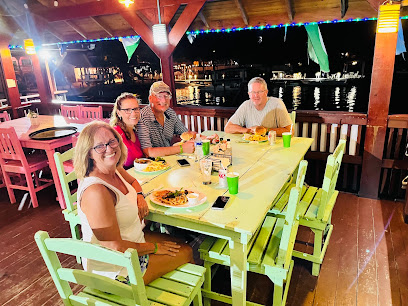
Creoles Rotisserie Chicken
Discover the authentic taste of island life at Creoles Rotisserie Chicken in West End - where every bite is a celebration of flavor.
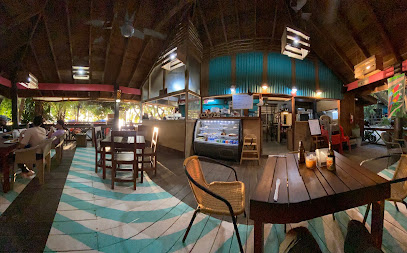
Snapper's Restaurant
Experience fresh seafood and authentic local cuisine at Snapper's Restaurant in Brick Bay - a culinary gem nestled in Honduras' Bay Islands.
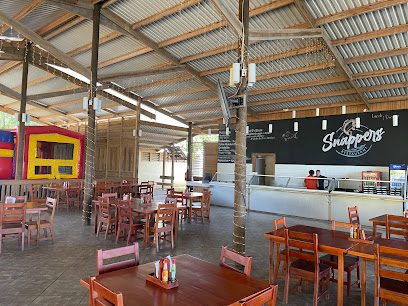
Gio's Restaurant
Experience exquisite local flavors and breathtaking ocean views at Gio's Restaurant in Flowers Bay, a culinary gem of the Bay Islands.
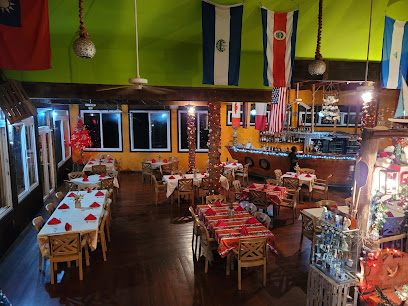
Roatan Oasis
Discover Roatan Oasis: A culinary paradise offering fresh local flavors and an unforgettable dining experience in West End.
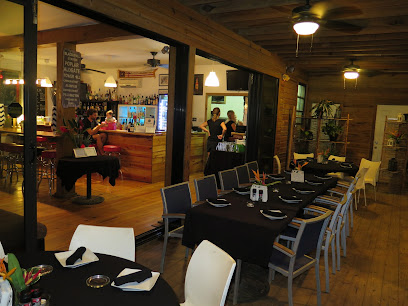
Kristi’s Overlook
Discover exquisite local cuisine amidst breathtaking views at Kristi's Overlook in Bay Islands - a culinary paradise awaits!
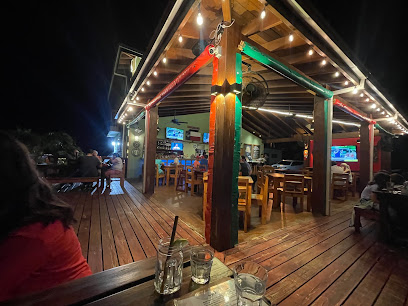
Beachers Bar & Grill Roatan
Experience beachfront dining at its finest with delicious food and live entertainment at Beachers Bar & Grill in Roatan.
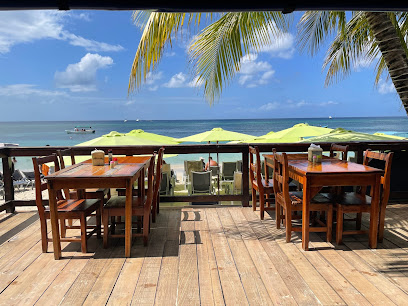
Splash Inn Restaurant
Experience the vibrant flavors of Roatan at Splash Inn Restaurant - where fresh seafood meets stunning ocean views in West End.
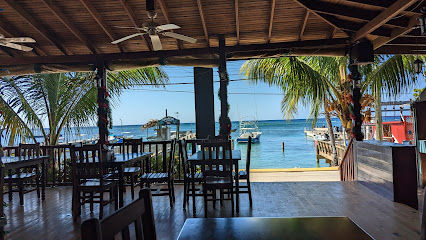
Blue Bahía Beach Grill
Discover Blue Bahía Beach Grill: A Culinary Paradise on Roatan's Sandy Bay Serving Fresh Seafood and Tropical Delights.
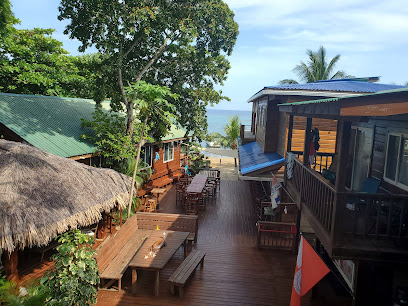
Hole In The Wall
Experience delicious Caribbean cuisine at Hole In The Wall in Roatan, where stunning ocean views meet exceptional flavors.
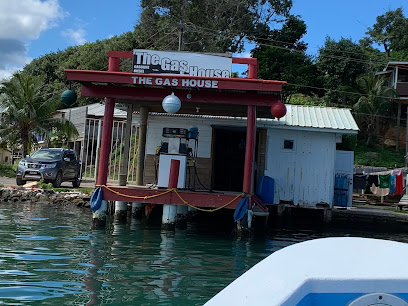
La Sirena de Camp Bay
Experience authentic Caribbean flavors at La Sirena de Camp Bay, where stunning views meet delicious cuisine in Honduras.
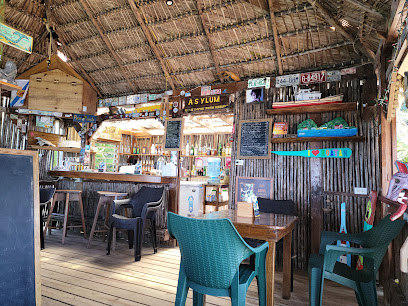
Markets, malls and hidden boutiques
Macaw Container Market
Explore the Macaw Container Market for unique souvenirs and delicious local cuisine just steps from Roatan Airport.
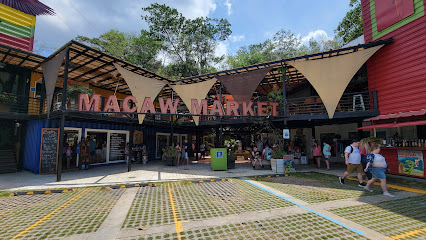
Mares Store Roatan
Discover the undersea wonders of Roatan at Mares Store, your ultimate dive shop destination in the Bay Islands.
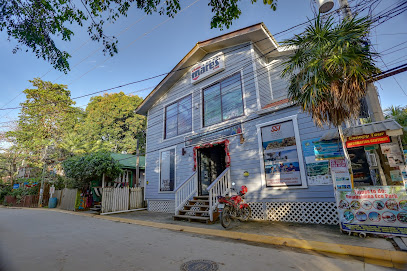
Tucan Gift Shop
Discover unique souvenirs and local crafts at Tucan Gift Shop in Dixon Cove, where vibrant culture meets exceptional craftsmanship.
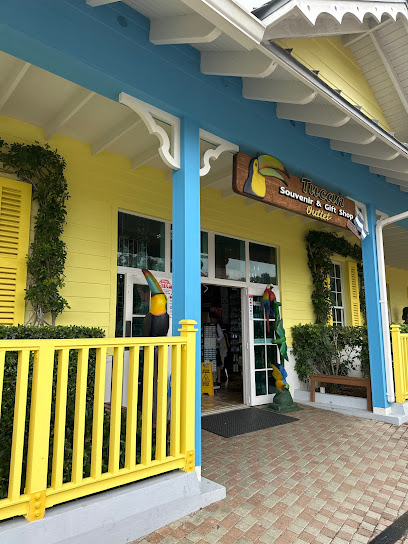
Roatan Island Art
Explore Roatan Island Art - A treasure trove of handcrafted souvenirs that embody the vibrant culture and beauty of Roatan.
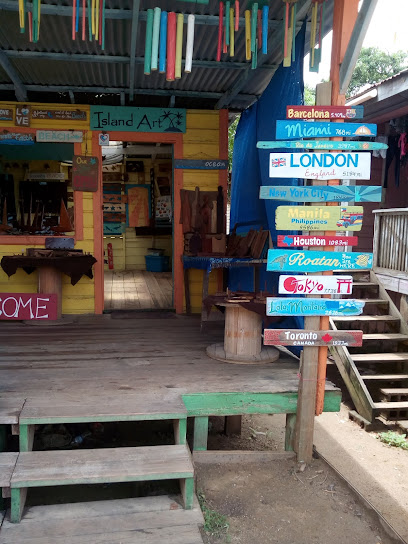
Main Street Mall
Explore the vibrant shopping scene at Main Street Mall in Coxen Hole, where local culture meets international retail in a delightful atmosphere.
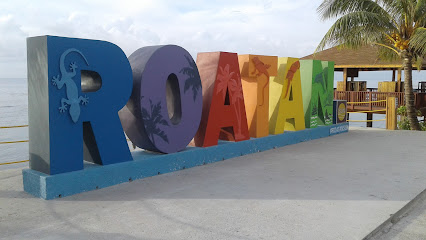
Halu - Kiliki
Discover unique handcrafted gifts at Halu - Kiliki in Coxen Hole, where local artistry meets warm hospitality.
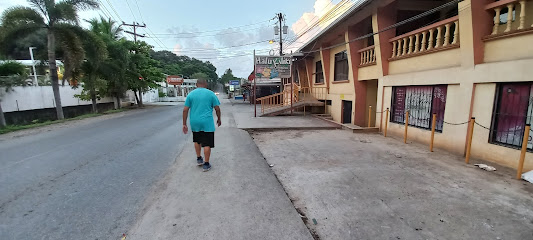
Dolphin Plaza
Experience the vibrant shopping scene at Dolphin Plaza, your ultimate destination for local crafts, delicious dining, and island culture in Bay Islands.
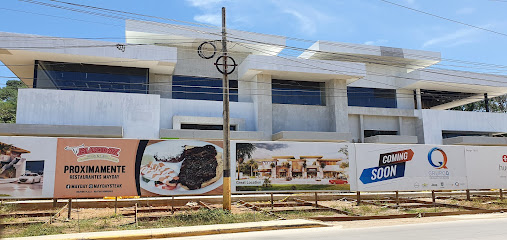
New Souvenirs Roatán - Gift Shop
Explore New Souvenirs Roatán, a gift shop in Coxen Hole offering unique crafts and delightful gift baskets that embody the spirit of the Bay Islands.
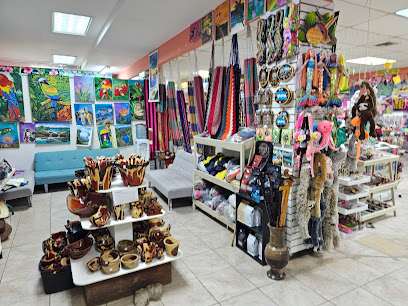
Harley-Davidson Roatan
Explore the vibrant Harley-Davidson Roatan for unique motorcycle apparel and souvenirs, celebrating the spirit of adventure and freedom.

Art & Craft Souvenir Suppliers
Discover authentic handmade treasures at Art & Craft Souvenir Suppliers in Roatán, a must-visit for unique local crafts and clothing.
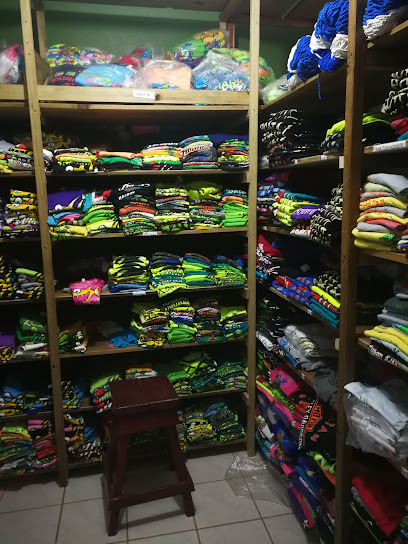
Premium Duty Free
Explore Premium Duty Free in Roatan - your one-stop shopping destination for local and international products at competitive prices.
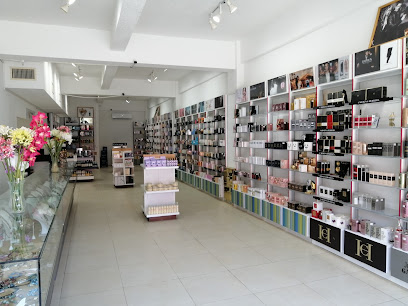
Diamonds International
Explore exquisite jewelry at Diamonds International in Roatan's picturesque port, where every piece tells a story of luxury and craftsmanship.
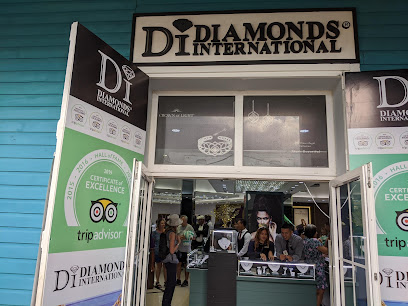
Made in Roatan
Explore the vibrant artistry of Roatan at Made in Roatan, where local culture and creativity blend beautifully.
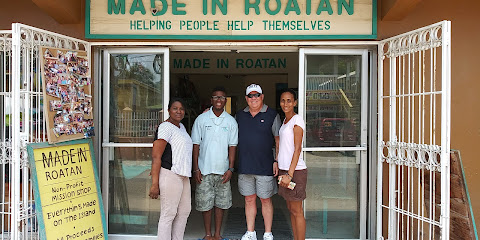
Seaside Gifts & Photos
Discover a treasure trove of unique souvenirs and local clothing at Seaside Gifts & Photos in Sandy Bay, perfect for capturing your travel memories.
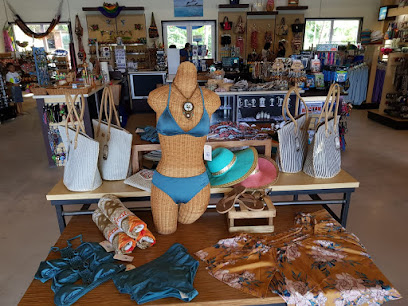
Outdoor Craft Market
Experience the essence of Roatán at the Outdoor Craft Market - a vibrant showcase of local artisans and unique handmade treasures.
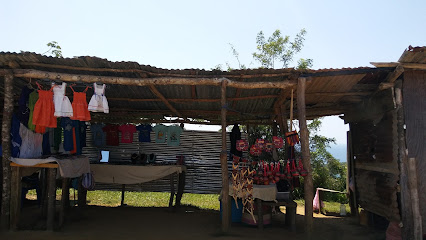
Essential bars & hidden hideouts
Booty Bar
Experience the vibrant flavors of the Caribbean at Booty Bar, your go-to grill and bar in West End for delicious food and refreshing drinks.
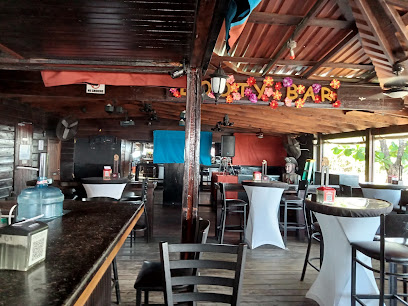
Sundowners Beach Bar
Experience breathtaking sunsets and delicious local cuisine at Sundowners Beach Bar, the perfect tropical retreat in the Bay Islands.
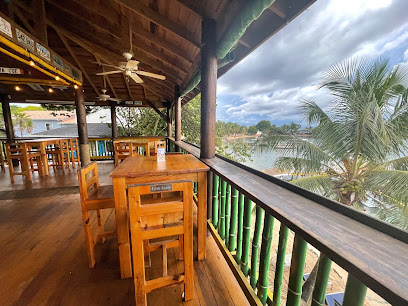
Herby's Sports Bar & Grill
Experience the excitement at Herby's Sports Bar & Grill, where sports meet delicious dining in the heart of French Harbour!
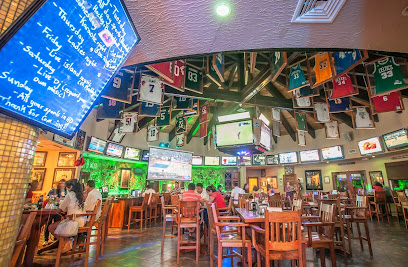
Blue Bahía Beach Grill
Experience the best of Caribbean cuisine and breathtaking views at Blue Bahía Beach Grill in Sandy Bay, Roatan.
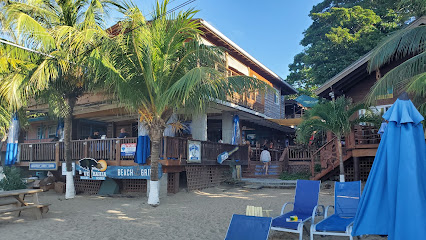
Sunset Hideaway Bar & Grill
Experience the best of Caribbean cuisine and stunning ocean views at Sunset Hideaway Bar & Grill in West Bay.
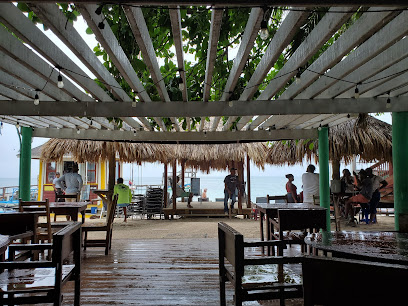
JavaVine Cafe & Wine Bar
Discover the delightful flavors of JavaVine Cafe & Wine Bar, a culinary gem in West Bay offering coffee, pastries, pizzas, and exquisite wines.
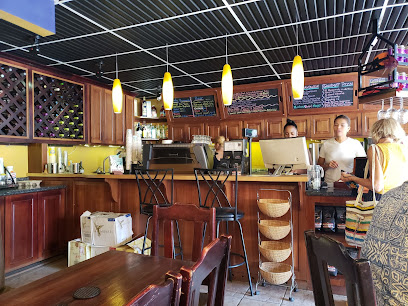
Blue Marlin
Discover the vibrant nightlife at Blue Marlin, a must-visit bar in West End, Bay Islands, perfect for enjoying cocktails, live music, and stunning ocean views.
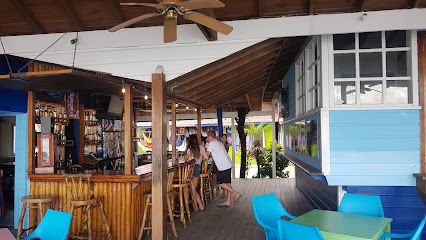
Franks BEACH bar
Discover the vibrant atmosphere and stunning ocean views at Franks BEACH Bar, the ultimate tropical retreat in the Bay Islands.
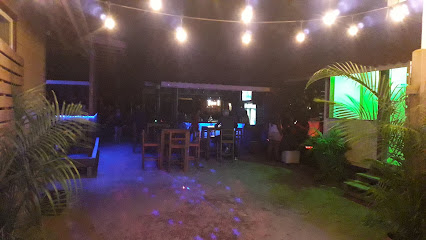
Hangover Hut
Experience the vibrant atmosphere and delicious grilled dishes at Hangover Hut in West Bay, a culinary oasis for every traveler.
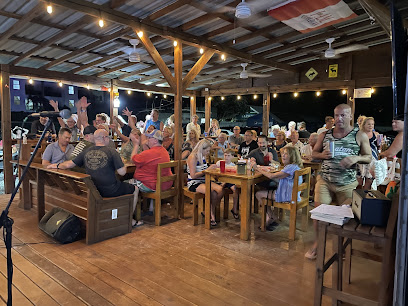
Calkett's Bar & Restaurant
Experience the flavors of the Caribbean at Calkett's Bar & Restaurant in Roatán, where delicious grilled cuisine meets breathtaking ocean views.
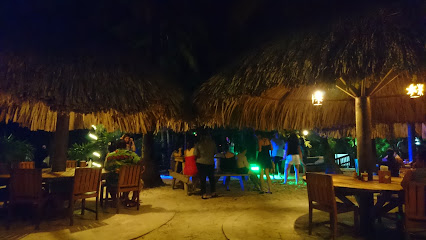
Fino Sport Bar
Experience lively nightlife and refreshing cocktails at Fino Sport Bar in Coxen Hole, Bay Islands, the perfect spot for sports and socializing.
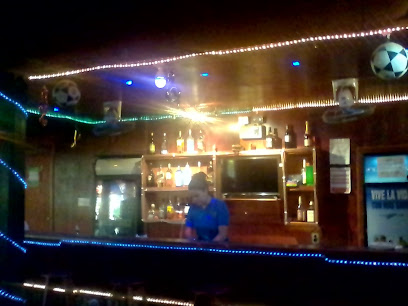
Babalu's Bar & Grill
Experience the vibrant flavors of Roatan at Babalu's Bar & Grill, a culinary gem in West Bay Beach with stunning ocean views.
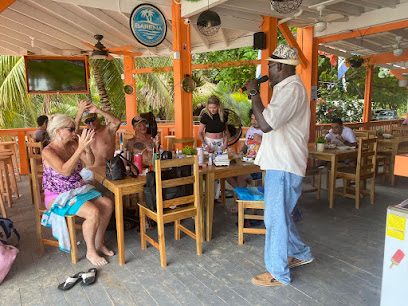
No Regrets Bar & Grill
Discover the vibrant atmosphere of No Regrets Bar & Grill in the Bay Islands, where delicious cuisine meets breathtaking views and lively entertainment.
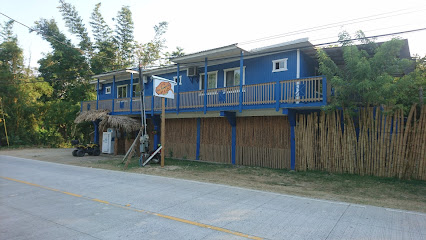
The Hideout Bar & Grill Roatan
Experience the flavors of Roatan at The Hideout Bar & Grill, where stunning views meet delicious cuisine in a cozy island atmosphere.
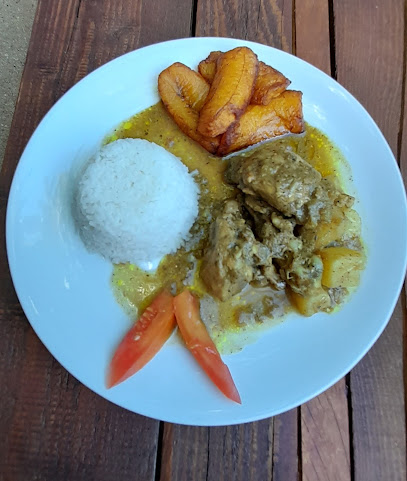
Local Phrases
-
- HelloHola
[oh-lah] - GoodbyeAdiós
[ah-dee-ohs] - YesSí
[see] - NoNo
[no] - Please/You're welcomePor favor/De nada
[por fah-vor/deh nah-dah] - Thank youGracias
[grah-see-ahs] - Excuse me/SorryPerdón/Lo siento
[pair-dohn/loh see-ehn-toh] - How are you?¿Cómo estás?
[koh-moh ehs-tahs] - Fine. And you?Bien. ¿Y tú?
[bee-ehn. ee too] - Do you speak English?¿Hablas inglés?
[ah-blahs een-glehs] - I don't understandNo entiendo
[noh ehn-tee-ehn-doh]
- HelloHola
-
- I'd like to see the menu, pleaseMe gustaría ver el menú, por favor
[may goo-stah-ree-ah vehr ehl meh-noo, por fah-vor] - I don't eat meatNo como carne
[noh koh-moh kahr-neh] - Cheers!¡Salud!
[sah-lood] - I would like to pay, pleaseMe gustaría pagar, por favor
[may goo-stah-ree-ah pah-gahr, por fah-vor]
- I'd like to see the menu, pleaseMe gustaría ver el menú, por favor
-
- Help!¡Ayuda!
[ah-yoo-dah] - Go away!¡Vete!
[veh-teh] - Call the Police!¡Llama a la Policía!
[yah-mah ah lah poh-lee-see-ah] - Call a doctor!¡Llama a un médico!
[yah-mah ah oon meh-dee-koh] - I'm lostEstoy perdido
[ehs-toy pair-dee-doh] - I'm illEstoy enfermo
[ehs-toy ehn-fehr-moh]
- Help!¡Ayuda!
-
- I'd like to buy...Me gustaría comprar...
[may goo-stah-ree-ah kohm-prahr...] - I'm just lookingSolo estoy mirando
[soh-loh ehs-toy mee-rahn-doh] - How much is it?¿Cuánto cuesta?
[kwan-toh kwehs-tah] - That's too expensiveEso es demasiado caro
[eh-soh ehs deh-mah-see-ah-doh kah-roh] - Can you lower the price?¿Puedes bajar el precio?
[pweh-dehs bah-hahr ehl pree-syoh]
- I'd like to buy...Me gustaría comprar...
-
- What time is it?¿Qué hora es?
[keh oh-rah ehs] - It's one o'clockEs la una en punto
[ehs lah oo-nah ehn poon-toh] - Half past (10)Media (10)
[meh-dee-ah (dies)] - MorningMañana
[mah-nyah-nah] - AfternoonTarde
[tahr-deh] - EveningNoche
[noh-cheh] - YesterdayAyer
[ah-yehr] - TodayHoy
[oy] - TomorrowMañana
[mah-nyah-nah] - 1Uno
[oo-noh] - 2Dos
[dohs] - 3Tres
[trehs] - 4Cuatro
[kwah-troh] - 5Cinco
[seen-koh] - 6Seis
[say-ees] - 7Siete
[syeh-teh] - 8Ocho
[oh-choh] - 9Nueve
[nweh-veh] - 10Diez
[dyes]
- What time is it?¿Qué hora es?
-
- Where's a/the...?¿Dónde está...?
[dohn-deh ehs-tah] - What's the address?¿Cuál es la dirección?
[kwal ehs lah dee-rehk-syohn] - Can you show me (on the map)?¿Puedes mostrarme (en el mapa)?
[pweh-dehs moh-strar-meh (ehn ehl mah-pah)] - When's the next (bus)?¿Cuándo es el próximo (autobús)?
[kwan-doh ehs ehl proh-ksee-moh (ow-toh-boos)] - A ticket (to ....)Un boleto (para ....)
[oon boh-leh-toh (pah-rah)]
- Where's a/the...?¿Dónde está...?
History of Roatán
-
Before the arrival of Europeans, Roatán was inhabited by the Pech (or Paya) people, an indigenous group with a rich cultural heritage. They relied on fishing and agriculture and left behind various artifacts that offer glimpses into their daily lives.
-
In 1502, Christopher Columbus arrived on the island during his fourth voyage to the New World. This marked the beginning of European interest in the region, although the Spanish focused more on mainland territories initially.
-
During the 17th and 18th centuries, Roatán became a notorious haven for pirates and privateers. Figures like Henry Morgan and Blackbeard used the island as a base for their operations against Spanish ships and settlements. The island's many coves and bays provided perfect hiding spots for their ships.
-
In the mid-18th century, the British briefly occupied Roatán and other Bay Islands to challenge Spanish dominance in the Caribbean. They established small settlements and forts, remnants of which can still be seen today.
-
In 1797, the Garifuna people, descendants of West African, Carib, and Arawak peoples, were exiled from the island of St. Vincent by the British and settled in Roatán and other parts of Central America. Their unique culture, language, and traditions have significantly influenced the island's identity.
-
In 1859, the British ceded Roatán and the other Bay Islands to Honduras through the Wyke-Cruz Treaty. This marked the beginning of the islands’ integration into the Honduran nation, although they retained a distinct cultural identity.
-
In the late 19th and early 20th centuries, the banana industry boomed in Roatán and the Bay Islands. American fruit companies established plantations and infrastructure, bringing economic growth but also leading to significant environmental changes.
-
Starting in the late 20th century, Roatán began to transform into a major tourist destination. Its pristine beaches, coral reefs, and diverse marine life attracted visitors from around the world. This shift has brought economic opportunities but also challenges related to sustainable development.
Roatán Essentials
-
Roatán is accessible via Juan Manuel Gálvez International Airport (RTB), located on the island itself. Direct flights are available from several U.S. cities and mainland Honduras. Alternatively, you can travel by ferry from La Ceiba on the Honduran mainland, which takes about 1.5 hours.
-
Roatán offers a variety of transportation options including taxis, rental cars, scooters, and local buses known as 'colectivos'. Taxis are plentiful but agree on a fare before starting your journey. Scooters and rental cars provide flexibility for exploring the island at your own pace. Colectivos are an economical option, though they may not adhere to fixed schedules.
-
The official currency is the Honduran Lempira (HNL), but U.S. dollars are widely accepted. Credit cards are commonly used in most hotels, restaurants, and shops, but it's advisable to carry some cash for smaller establishments and local markets. ATMs are available in major areas like Coxen Hole and West End.
-
Roatán is generally safe for tourists, but it's important to stay cautious. Areas like Coxen Hole have higher crime rates, especially after dark. Avoid isolated areas and be vigilant with your belongings in crowded places. Stick to well-lit, busy areas and use registered taxis or reputable transport services.
-
In case of an emergency, dial 911 for immediate assistance. Roatán has several medical clinics and a public hospital in Coxen Hole. It's strongly recommended to have travel insurance that covers medical emergencies. For minor health issues, numerous pharmacies are available across the island.
-
Fashion: Do dress in lightweight, breathable clothing, but avoid overly revealing attire, especially in local communities. Religion: Do respect local customs and traditions, particularly in places of worship. Dress modestly and remove hats when entering churches. Public Transport: Do use registered taxis and negotiate fares in advance. Don't use unmarked or unregistered vehicles. Greetings: Do greet locals with a friendly 'Hola' and a handshake. Eating & Drinking: Do try local dishes and be open to new culinary experiences. Don't drink tap water; opt for bottled water instead.
-
To experience Roatán like a local, visit the local markets in Coxen Hole for fresh produce and handmade crafts. Try traditional dishes like 'baleadas' and 'conch soup'. Engage with locals, who are generally friendly and happy to share stories about the island. Don't miss the Garifuna cultural performances in Punta Gorda and take a guided tour to explore the island's lesser-known natural beauties.
Trending Landmark in Roatán
-
Berth 1 - Port of Roatan
-
Mahogany Beach
-
Daniel Johnson's Monkey and Sloth Hang Out
-
Anthony's Key Resort
-
Little French Key
-
Jungle Top Adventures Zipline
-
Mayan Eden
-
The Roatan Chocolate Factory
-
Gumbalimba Park
-
Roatan Institute for Marine Sciences
-
Arch's Iguana and Marine Park
-
AJ's Monkeys and Sloths
-
Maya Key
-
Roatan Island Brewing Co
-
Roatan Rum Company
Nearby Cities to Roatán
-
Things To Do in Utila
-
Things To Do in La Ceiba
-
Things To Do in Puerto Cortés
-
Things To Do in San Pedro Sula
-
Things To Do in Dangriga
-
Things To Do in Hopkins
-
Things To Do in Placencia
-
Things To Do in Belize City
-
Things To Do in Caye Caulker
-
Things To Do in Puerto Barrios
-
Things To Do in San Pedro
-
Things To Do in Livingston
-
Things To Do in Punta Gorda
-
Things To Do in Tegucigalpa
-
Things To Do in Rio Dulce










